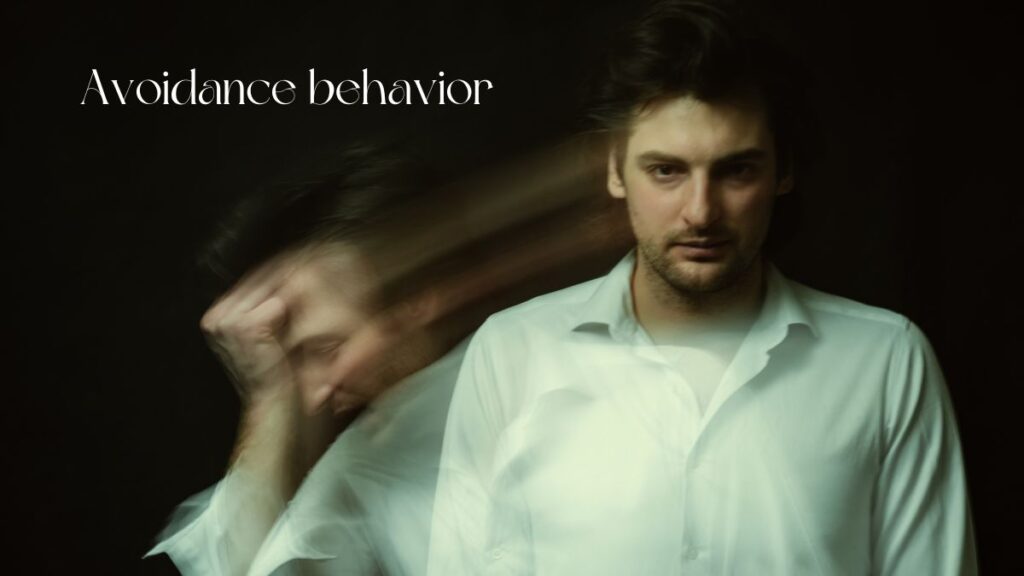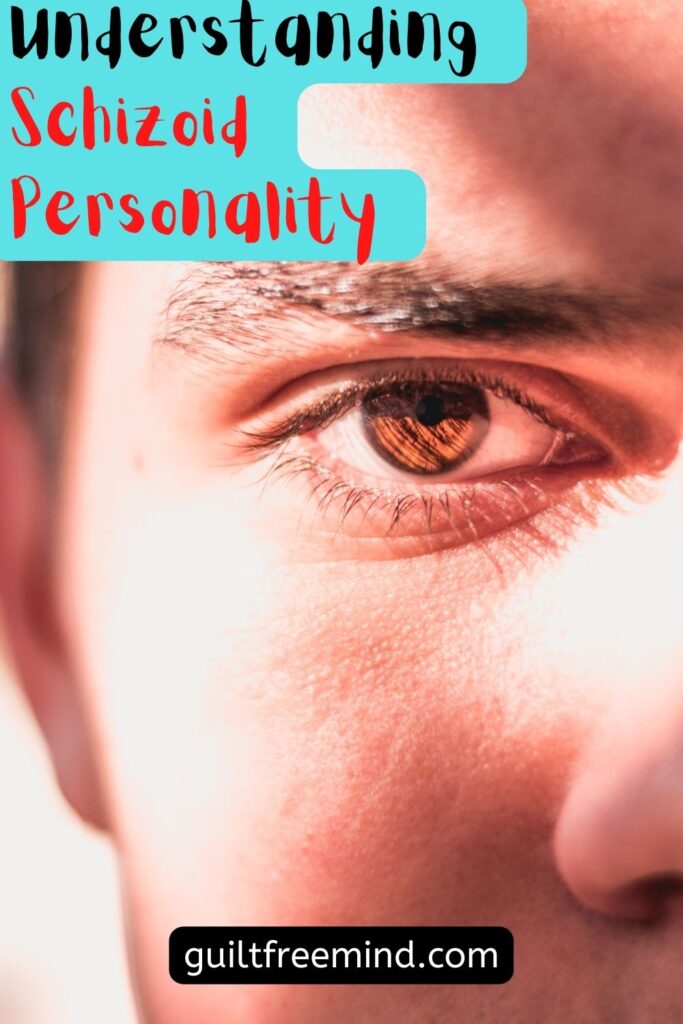In my previous blog post, I discussed what is a schizoid personality disorder. When people hear the word schizoid, they either think of schizotypal disorder or schizophrenia, or schizoaffective disorder. The two disorders schizoaffective disorder and schizophrenia are serious cases of psychoses. Those who suffer from schizotypal disorder show symptoms that are disturbing and more visibly odd than those with a schizoid personality disorder. The confusion between these disorders arises from the use of the word schizo. The word schizo is a Latin version of the Greek word which means split. Let’s get one thing out of the way. Schizotypal disorder or schizophrenia is not the same as a schizoid personality disorder.
Table of Contents
Causes behind the occurrence of schizoid personality
Before I discuss the causes behind the occurrence of this personality disorder, you need to know why it happens in the first place. A person is said to have a personality disorder when he/she displays a persona that is not acceptable to society. However, certain factors predispose a person to develop this personality disorder. These can either be
• Child abuse
• Sexual abuse
• Verbal abuse.
• Absence of proper parental supervision.
• Size batteries.
• Low birth rate
• Premature birth of the child.
• Reduction of the hormone serotonin.
• Traumatic brain injury.
• Genetic factors.
• Growing up in an environment that lacks any sort of emotional nature.
• And a few others.

Signs and symptoms of a person having a schizoid personality
The primary definition of a person with schizoid is distancing, disconnection, and detachment. Such people find it extremely hard to put their trust in another person because of their past trauma. There learned to only depend on themselves. Due to their highly independent nature, they come off as aloof and indifferent. Here are the primary characteristics of those suffering from schizoid:
• Avoid close relationships at all costs, because they view others as unsafe.
• Prefer to engage in solitary activities like reading, excising, alone, or playing video games.
• Prefer to avoid large gatherings. Such people will attend if the need arises, but they will prefer to stay away.
• They have little to no interest in any kind of sexual activity. This is because engaging in a sexual act requires a certain level of trust.
• Fight or flight response is not a cup of tea. Since such individuals have been dissociated from other people for so long that even in the face of danger they find it hard to have an adrenaline rush.
• They have very few people whom they talk to about things important to them.
• They try to have fantasy relationships, but never like to approach the person of their affection.
• Others’ opinions do not matter to them.
• They experience emotions. However, they do not like to show the world how they feel.
What type of problems do people with schizoid personality face?
Since these people prefer to keep themselves completely unattached to anyone in society, there is a chance that they may encounter certain problems that arise by never learning to depend on others for anything.

Absence of basic trust.
Their experiences taught them early in their childhood, that they cannot depend on anyone except themselves. They either had uncaring, neglectful, abusive, or intrusive parents. This is why they became extremely independent and taught themselves that relying on others for their own needs is a mistake. Most people having schizoid personalities reported that by the time they reached the age of seven, they had realized that their family members or adults cannot be trusted to care for them. In most cases, such kids had parents who were either narcissistic or had a borderline personality disorder. This taught them that trusting others is a big mistake.
Extremely self-sufficient.
These people grew up with no affection from their parents. Their childhood was a cry for help and they learned that they couldn’t depend on anyone for any of their needs. This is why those having schizoid personalities are extremely self-sufficient. They try to be as self-reliant and self-dependent as possible. Instead of looking to others for any kind of support or help, they only depend on themselves. This behavior is very unlike their narcissistic or BPD-type parents. They are also extremely private individuals. They do not like sharing any details of their personal life with others. This makes them look as if they are extremely aloof and do not care about anyone. However, the reality is that being this way gives them a higher sense of security.
Dissociation
Since the need to protect themselves arose in childhood, because of their parents, the victims were not able to fight back physically. When the body cannot fight, the mind tries to protect the individual by making them dissociate from the body itself. This way, the child was able to find a safe hideout inside his or her mind while the physical abuse continued. Unfortunately, by the time such people reached adulthood, the constant dissociation had become a part of their persona.
Dissociation is normal to them. Even if they do not want to, they will still dissociate themselves from people in their surroundings, because that is the only way the brain knows to protect such people. For them, their life is like walking through a black-and-white movie. None of the activities or actions indulge in feeling emotionally meaningful to them. However, they function because that is what is required of them.
Social fears
There is one thing that these people learned since childhood. It was that they cannot trust anyone. Even though what others think about them does not matter to them, when it comes to engaging in interpersonal interaction, they would not want to be with someone who has a loud voice, dominating nature, or seems unpredictable. This is born out of a deep need to protect themselves against everyone in their surroundings.
Avoidance behavior.
Most of us have a fight-or-flight response. If things are not going, according to us, we would generally prefer to remove ourselves from the situation. However, this behavior is very dominant in those with schizoid personalities. They tend to emotionally and physically distance themselves from their social peers and other people. If they are at a party, they will stick to the fringes. You may also find them stationed closest to the exit so they can make a quick escape whenever needed.

Escape hatches in the relationships
Those with schizoid personalities tend to build up Escape hatches in their relationships. This gives them a way to justify why the relationship did not work out and why they should leave the relationship. They will either look for a job that involves them traveling a lot or start an affair with someone who is married and not emotionally available. They may try to periodically escape the relationship as well. The idea of being completely intimate with someone and sharing the deepest darkest secret is not ideal for them. They prefer to be in open relationships or relationships that do not have strings attached to them. Most people with schizoid personalities feel trapped and claustrophobic when in a committed relationship.
In and out type of relationships in schizoid personality
One of the very common traits of a schizoid personality involves having a relationship that is on and off. Initially, the person with a schizoid personality will try to love the other person and get their feelings reciprocated. However, the moment the other person starts to feel the same way starts to reciprocate their feelings, and starts to get intimate, those with schizoid personalities will become scared. They will start to consciously shut down their feelings. This is an attempt to protect themselves. They will start to look for reasons to leave the relationship.
Once they have left the relationship and a certain amount of time has passed, their irrational fears will simmer down, and they will start to feel the attraction and love towards that person again. They may also want to restart the relationship. However, the same pattern repeats itself once the other person starts to reciprocate. Thus, if such people do not get therapeutic help, chances are that they will loop the other person in an in-and-out relationship.
Narcissistic behavioral patterns.
In most cases, those who are in a relationship with one having schizoid personality, think that the person has narcissistic behavioral patterns. One of the behaviors exhibited in the case of schizoid personality is behavior that appears to be superficial. This can hurt the partner. However, the motive of the schizoid is not the same as a narcissist. Narcissists leave the relationship because they are bored and they do not idealize the partner anymore. Narcissists look for validation from their partners. However, those with schizoid personality, do not want the approval of others. They leave because they feel claustrophobic and trapped in the relationship. They do not entertain or like the idea of being in control of someone else.
An elaborate fantasy life
Those people with schizoid personality can substitute real relationships with elaborate fantasy relationships. Unlike what happens in real life, in the case of their fantasies, everything is the way they want. Therefore, fantasy relationships seem safer to them than real ones. In the case of people with schizoid personalities, they tend to create such elaborate and compelling fantasy worlds that they have gone on and become famous writers. Their fantasy is a happy place. Nothing goes wrong in the fantasy. Therefore, such people prefer to stay in their fantasy world more than in the real world.
Existential fears.
Such people become extremely preoccupied with the meaninglessness of life and the idea of death. They are afraid of keeping themselves from others. However, they are also afraid of committing because of all the boundary-breaking that it comes with. They fear that if they keep isolating themselves, one day they will have no connection with any other human being. Another fear is that, after spending a long time in mental isolation, they will not be able to connect with others.

Hiding emotional reactions.
Those with narcissistic personality or borderline personality disorder tend to publicly attack, others when they feel cornered or scared. However, those with schizoid personalities will avoid this confrontation at all costs. Such people do not give enough importance to others, so their opinions cannot make a dent in their psyche. Schizoid personality people do not look for approval from others. Praises are meaningless to them. Therefore, they try to handle all aspects of their lives on their own. They do not want others involved in their problems.
Lack of object constancy and whole object relations.
Another common characteristic of those with schizoid is that they tend to lack whole object relations and object constancy. This is a common trait that is observed in the case of most personality disorders.
Object relations.
Object relation is the ability of one to see themselves in a relatable, realistic, and relatively integrated way that contains qualities that are both disliked and liked at the same time. This means excepting others to have a mixed bag of good and bad qualities. On the other hand, object constancy is the specific ability of a person to maintain relations with those objects, even when you feel disappointed, angry, or physically distant from the said person.
When there is an absence of object relations and object constancy, people view others as either being completely bad or completely good. Since no one is completely good, most people end up falling into the completely bad aspect. For those with schizoid, this would be the unsafe version.
When should you consult a therapist?
If you are:
• Constantly frustrated with feelings of dissociation, emotional detachment, and loneliness.
• Finding it impossible to navigate through your distress and loneliness alone.
It is a sign to consult a therapist who is trained in identifying personality disorders. Your therapist will first work with you to diagnose the cause behind your behavior. After that, they will work with you to build social skills that can help you integrate better into society. They will also give you coping strategies so that you can manage your emotional distress.

A correct diagnosis can make the therapy extremely valuable to you. This way, you will feel more successful and less alone. The one thing that matters most in the case of those having schizoid personalities is getting the support they need to live their lives to the fullest. Once the correct diagnosis has been done, you can lead a more positive and fulfilling life.
How can the therapist help?
• A good therapist can help you understand how to set the boundaries that increase your safety feeling.
• Practice how to express emotions and reference others in a way that is not hurtful to them.
• Work through your past experiences and, so that your today and tomorrow can be more meaningful.
• Build up your social skills so that you feel more comfortable interacting with others.
• Make you realize what whole object relations are. This way, you will be able to recognize others and yourself as a part of an integrated society.
If you want to start interacting with others who face a similar issue as yours, group therapy might be another amazing option for you. Other complimentary therapies are as bodywork can also be an immense help in making you feel less detached from your own body.
Medication
In the case of schizoid personality, medications are not usually recommended. However, they may sometimes be used for a short duration. This is used when the person is facing depression or extreme levels of anxiety due to the schizoid personality. Anxiety is usually the result of fear of other people. It can also be the result of a related schizotypal personality.
Individual therapy can be useful. It most often helps such people establish authentic relationships. Individual psychotherapy cases have also been observed to help forge true relationships between the therapist and patient in therapy.
Psychotherapy
In the case of schizoid disorder, long-term psychotherapy is generally not an option. The purpose of the treatment is to remove the pressing concerns that are present in the life of the individual. It can be used to address the absence of clear and rational thought that is negatively impacting the person’s behavior and ability to lead a normal life. The primary therapeutic plan will be discussed with the patient right at the onset of the treatment. Another factor that is to focus on is cultural differences which can come up as personality disorders because of the person not adhering to the cultural norms
Understanding the prognosis of schizoid personality.
Those with schizoid personality generally lead a life that they are satisfied with. However, if you compare this disorder with other personality disorders, those with schizoid are less likely to experience depression and anxiety. This is especially true if they are in a scenario of work-from-home or in an occupation that does not put pressure on them to exhibit their social skills.

Conclusion
Personality begins in the early childhood phases of an individual. The need for such a personality arises from the lack of parental support and trauma. Instead of feeling loved, understood, and appreciated, the child experiences neglect, intrusiveness, and abuse. This modifies the child’s thoughts of others. They especially feel that elders cannot be trusted. Thus, the child only relies on themselves to get through all kinds of problems. This behavior continues to adulthood, and as these individuals become adults, they find it impossible to depend on others.
In most cases, those with schizoid personalities live alone, because this is safer. They do not exhibit many different signs than normal people. Therefore, they are very hard to identify in a crowd. They hold jobs, work well at their office, and do not show any obvious signs of distress. Thus, it’s quite hard to identify such people unless you are someone who knows what to check for. They tend to internalize all their feelings and hide them away from everyone else.
Seek help
Schizoid personality is a mental health condition. It’s not one of the normal personalities. Therefore, just as is the case with other mental health conditions, you must seek help the moment you realize that it is disrupting your life or the life of your loved one.
Professionals from the mental health field can provide you with plans that can help you manage your thought and behavior. The family members of those with schizoid also experience, depression, isolation, and stress. If you are someone who is living with a person with a schizoid personality, you need to reach out for help as well. A mental health practitioner can help you understand the disorder of your loved ones in a better manner and provide you with coping strategies as well.

If you have experienced this personality, please put it in the comment section below. If you have any queries regarding this blog post or any other on Guilt Free Mind, feel free to reach out to me on Twitch. I do co-working streams on twitch from Thursday to Tuesday, 11 AM to 7 PM Indian Standard Time. You can also contact me via the contact form if you wish for a private session. Finally, last, but not least if you like watching videos, please subscribe to the YouTube channel of Guilt Free Mind. Remember to ring the notification bell so that you can notify you every time there is a new video release.
See you in my next post.

6 Comments
Wow, amazing blog layout! How long have you been blogging for? you made blogging look easy. The overall look of your web site is magnificent, as well as the content!
Wow, superb blog layout! How long have you been blogging for? you make blogging look easy. The overall look of your site is magnificent, as well as the content!
I’m diagnosed schizoid PSD. This is a great article and has a lot of valuable information that I wish more people dealing with mental health were aware of. It’s very hard to have the diagnosis excepted by psychiatrist or therapists who only know the picture in the DSM and it took my psychologist a year to diagnose me even though I mentioned it on the first visit. It’s tough out there. Thanks
Thank you for your appreciation.
Brilliant article. Very well written .
I have Schizoid personality since decades and it’s very messed up .
It forces me to live alone , I guess .
I understand. Thank you for sharing that with us,